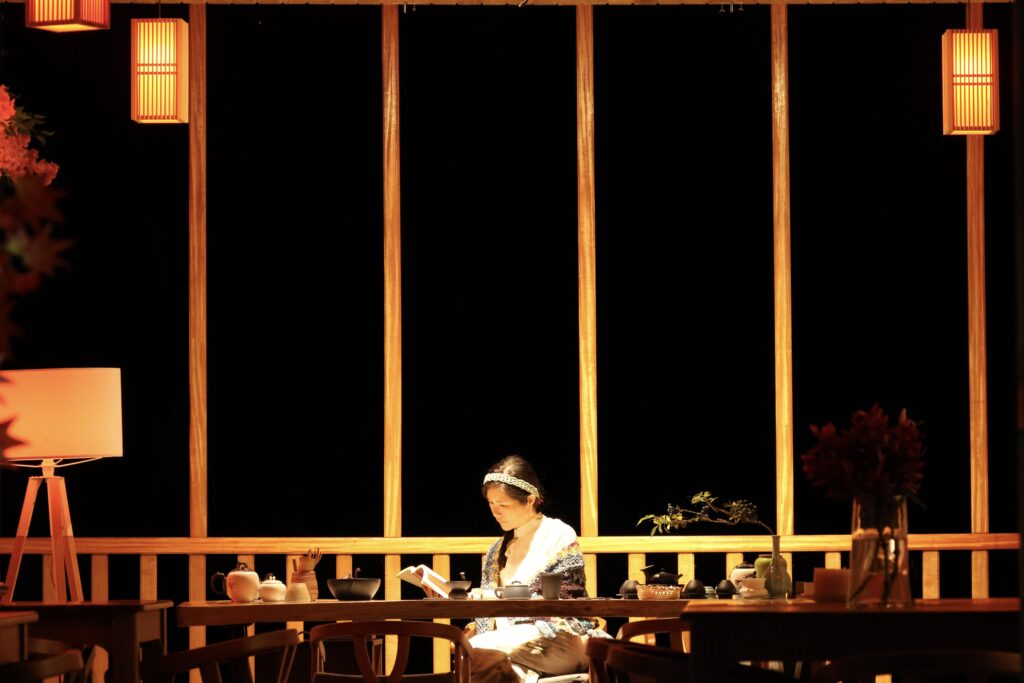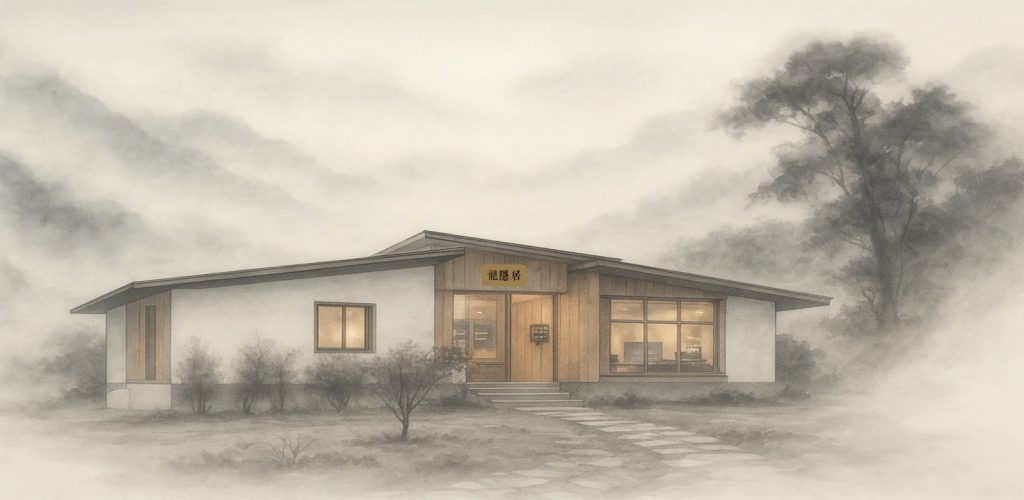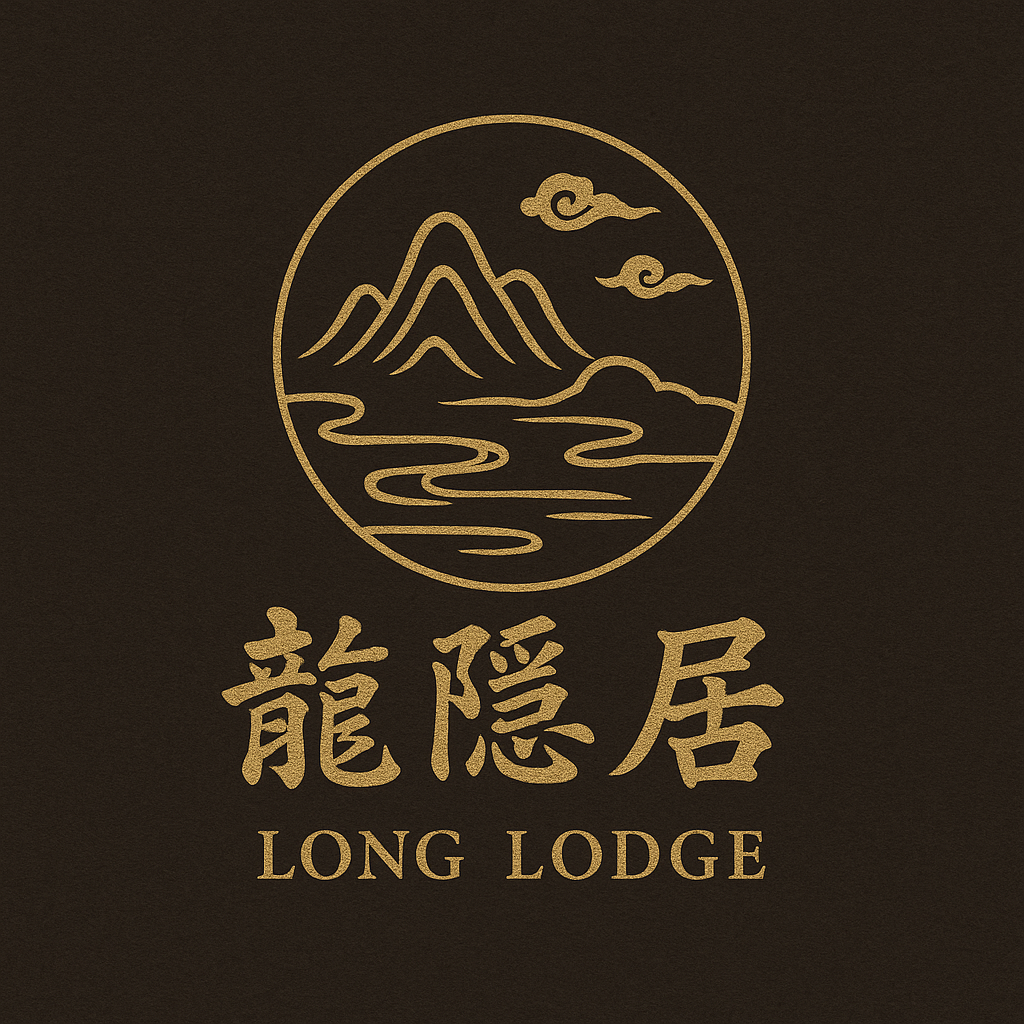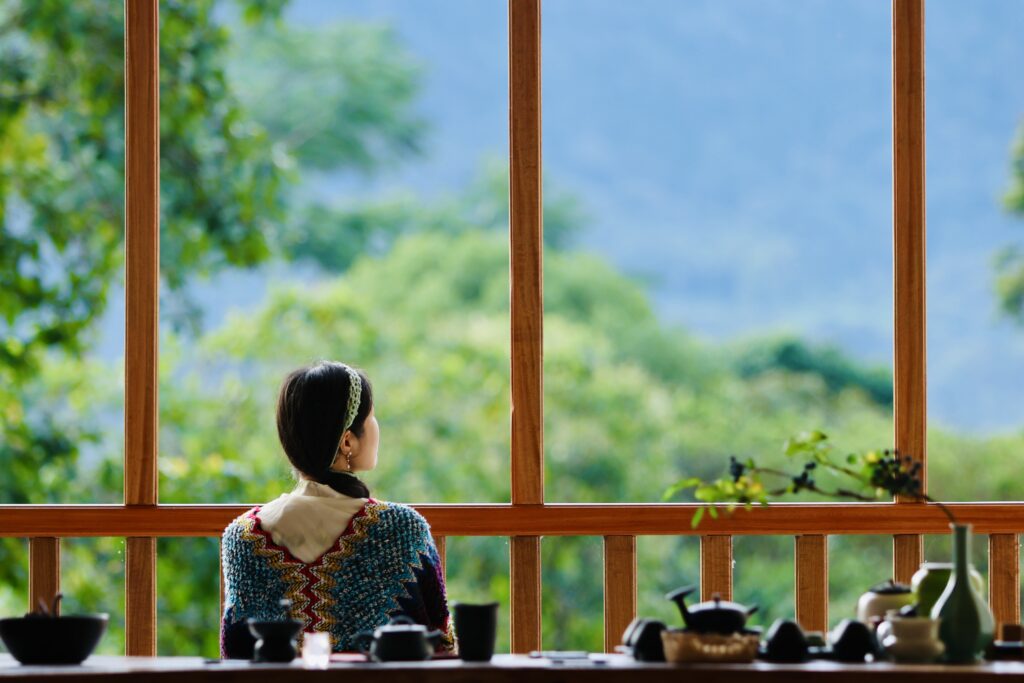Latest
-
-
Why Two Nights at LONG Lodge Unlock the True Experience
One night is an arrival. Two nights are an awakening.
In the misty mountains of Mindo, time slows and softens.
You brew a pot of tea, watch hummingbirds dance through bamboo shadows,
and sink into the warm jacuzzi beneath the starlit sky.On the second day, we invite you into the rhythm of the East —
to savor handmade Chinese dishes,
to join a quiet tea ceremony,
to listen to the harmony between East and West,
and feel the resonance of the ancient shakuhachi blending with modern melodies.
Here, sound, scent, and flavor flow together —
and your spirit begins to move again.If you wish, explore the local chocolate factory or coffee plantation,
and taste the tropical sweetness of the land.Here, tea brings stillness,
music carries the soul,
and food warms the heart.
LONG Lodge is not a place to stay —
it’s a place to return to yourself.
-
We had the great honor of hosting Patrick family
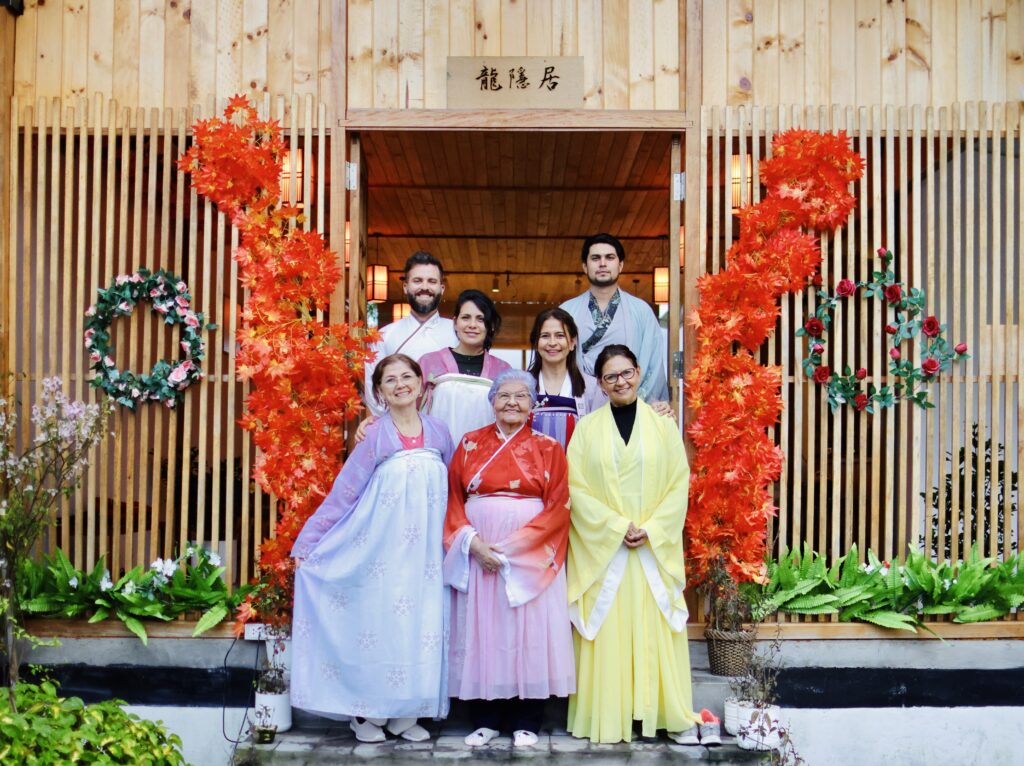
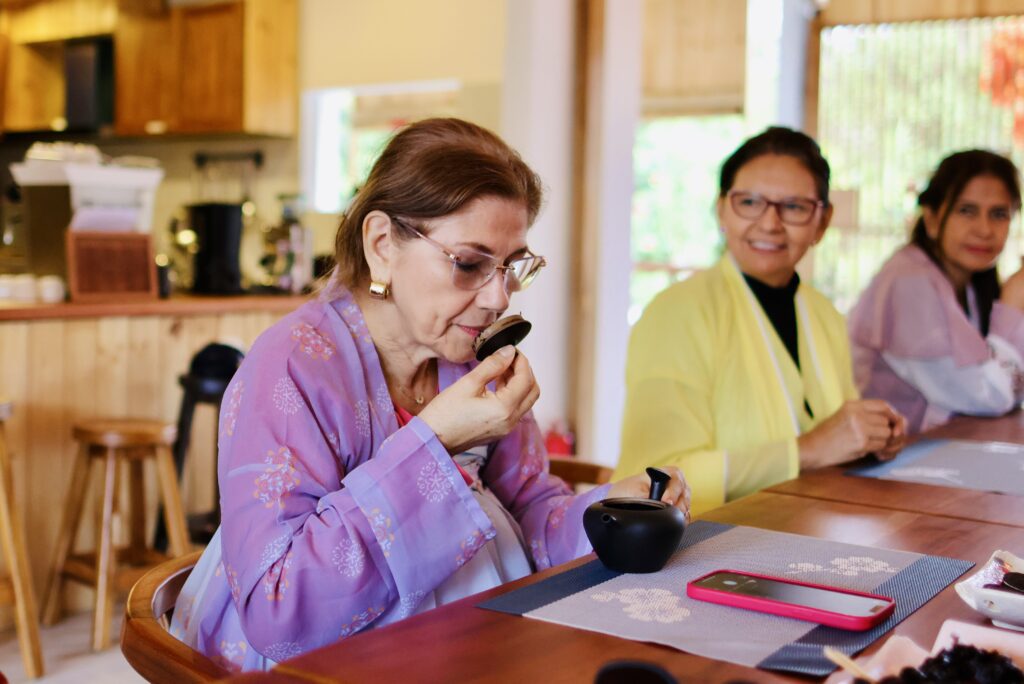
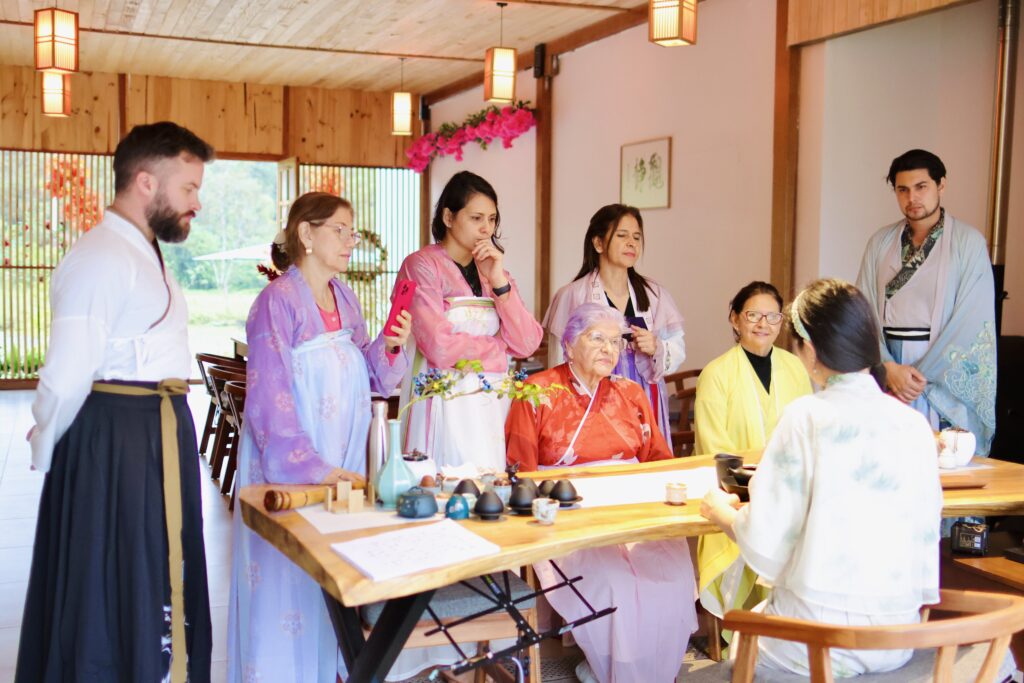
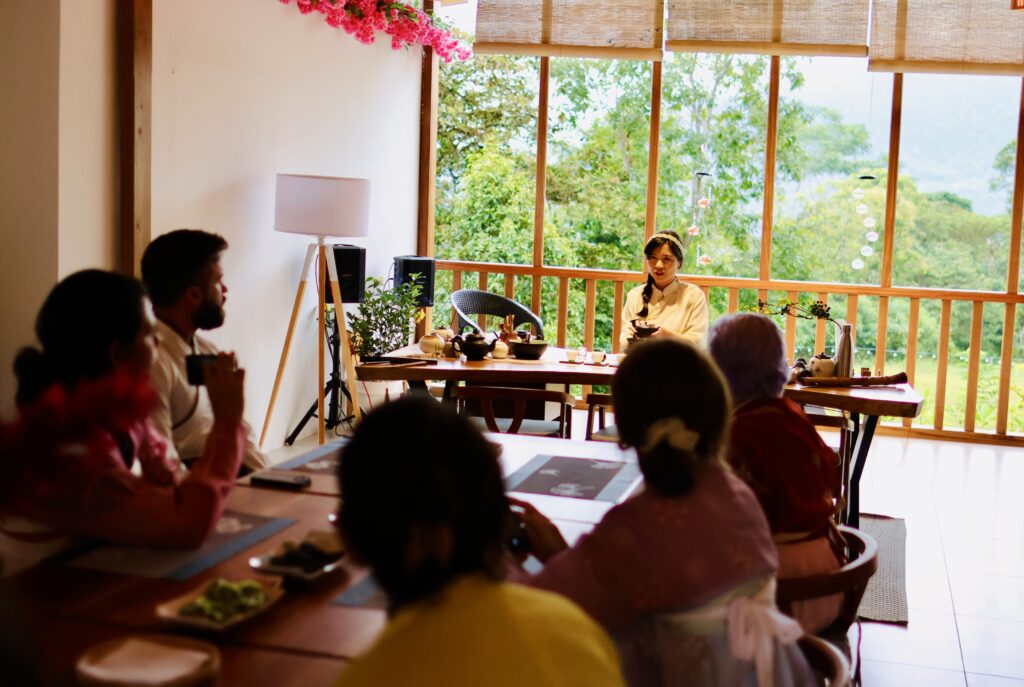
We had the great honor of hosting Patrick family to visit LONG Lodge, They were truly wonderful guests—kind, cheerful, and full of positive energy. Every moment with them was filled with warm smiles and joy.
It was inspiring to see such a close and harmonious family enjoying their stay together, from sharing tea and Hanfu to relaxing in the lodge surrounded by nature. We are grateful they chose LONG Lodge for their family gathering, and we hope to welcome them back again in the future.
-
We’re honored to be recognized as an Airbnb “Guest Favorite”
Thanks to the support and kind reviews from our wonderful guests,
our home is now ranked among the top 10% of listings worldwide!
A perfect 5.0 rating reflects not only clean and comfortable spaces, but also the unique cultural experiences
we create at LONG Lodge – where you can relax, enjoy nature, and embrace the beauty of East-West connections.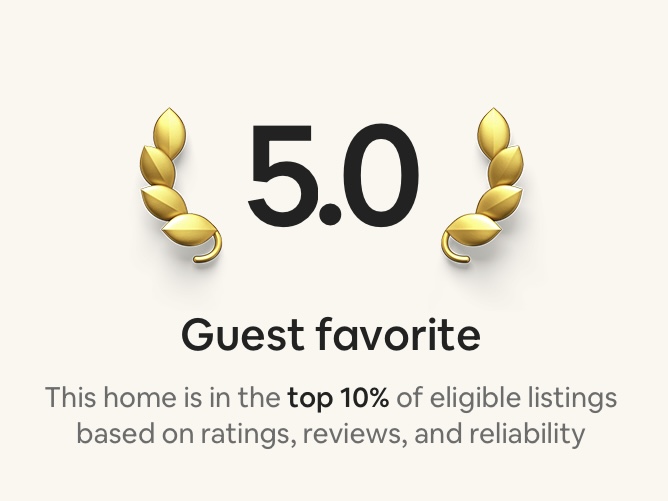
This recognition belongs not only to us, but to every guest who has stayed with us and those yet to come.
We’ll keep striving to make every stay unforgettable.
-
Stay a Night in a Chinese Home
🏮 來中國人的家裡住一天!
一晚住宿|恆溫泳池與 Jacuzzi|中式早晚餐+茶道體驗|每人 $60
Stay a Night in a Chinese Home|Heated Pool & Jacuzzi|Authentic Meals + Tea Ceremony|$60 per person
¡Vive un Día en una Casa China!|Hospedaje + Piscina Climatizada + Comidas Chinas + Ceremonia del Té|$60 por persona
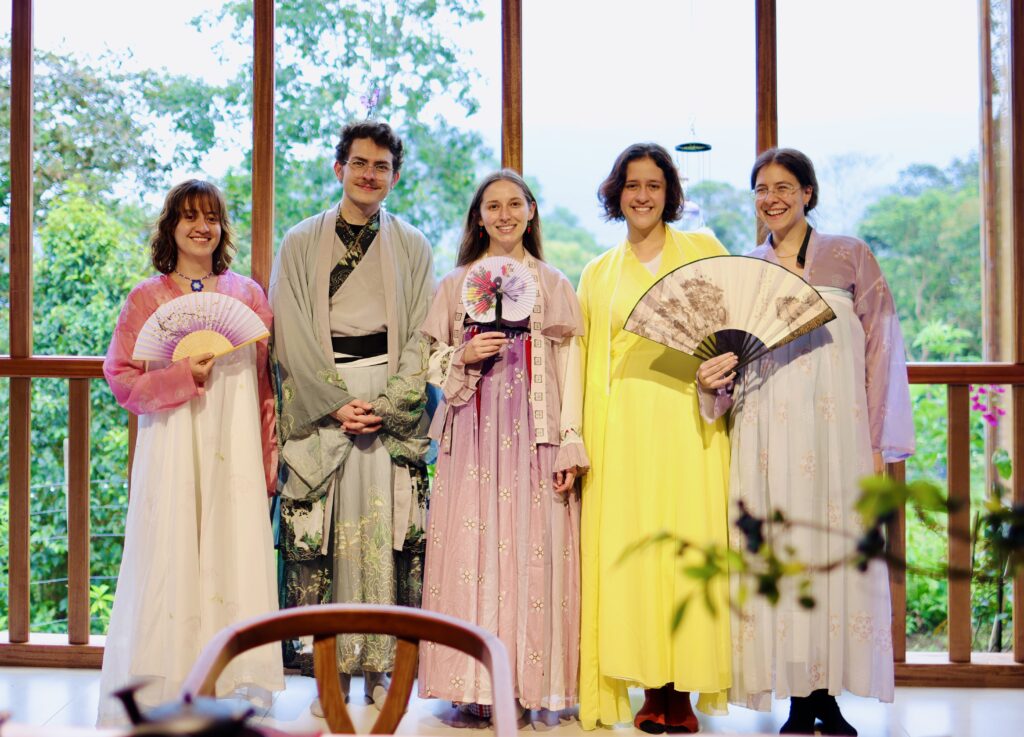
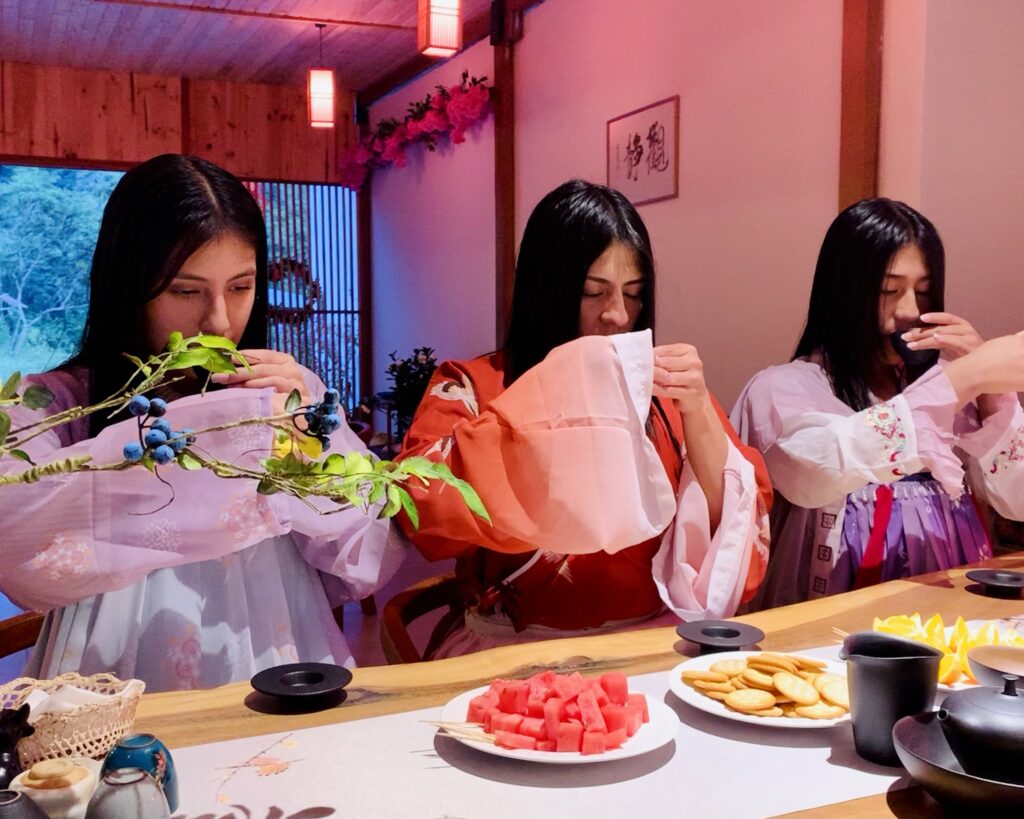
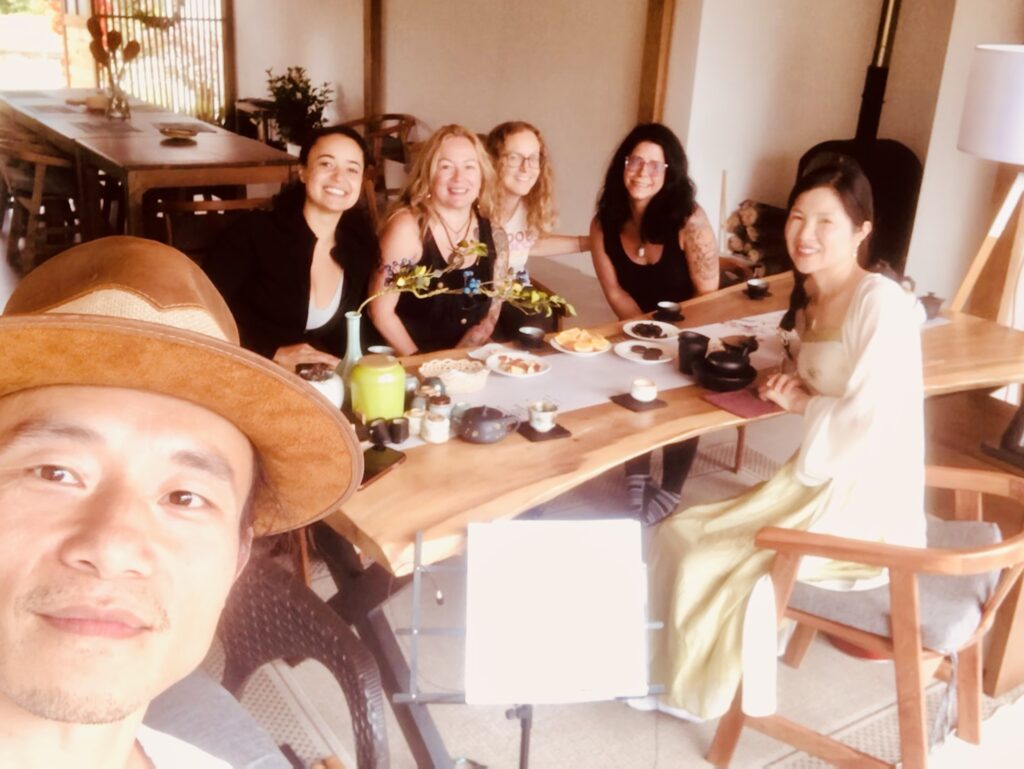

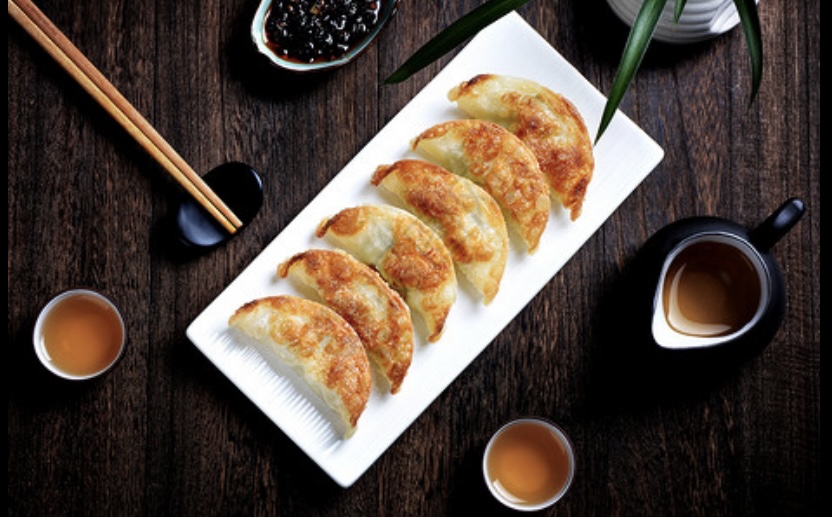
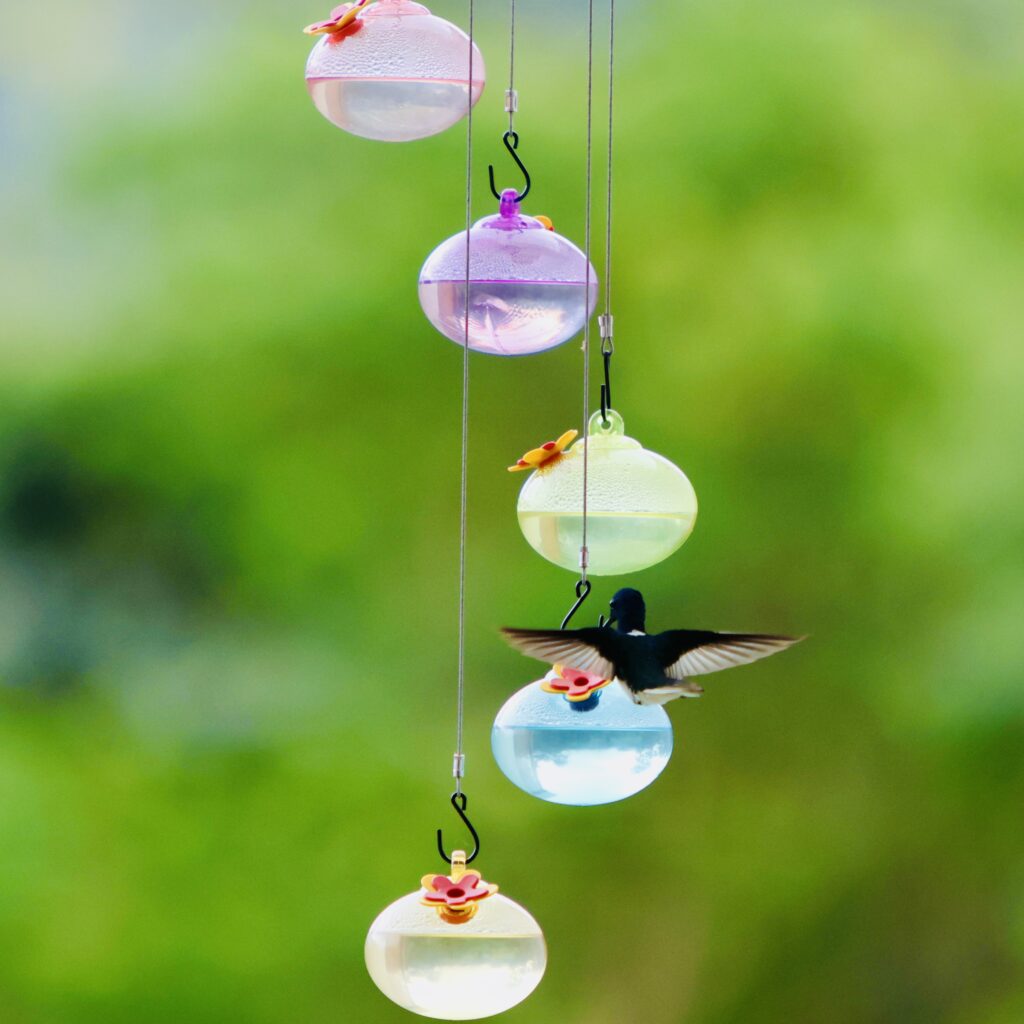

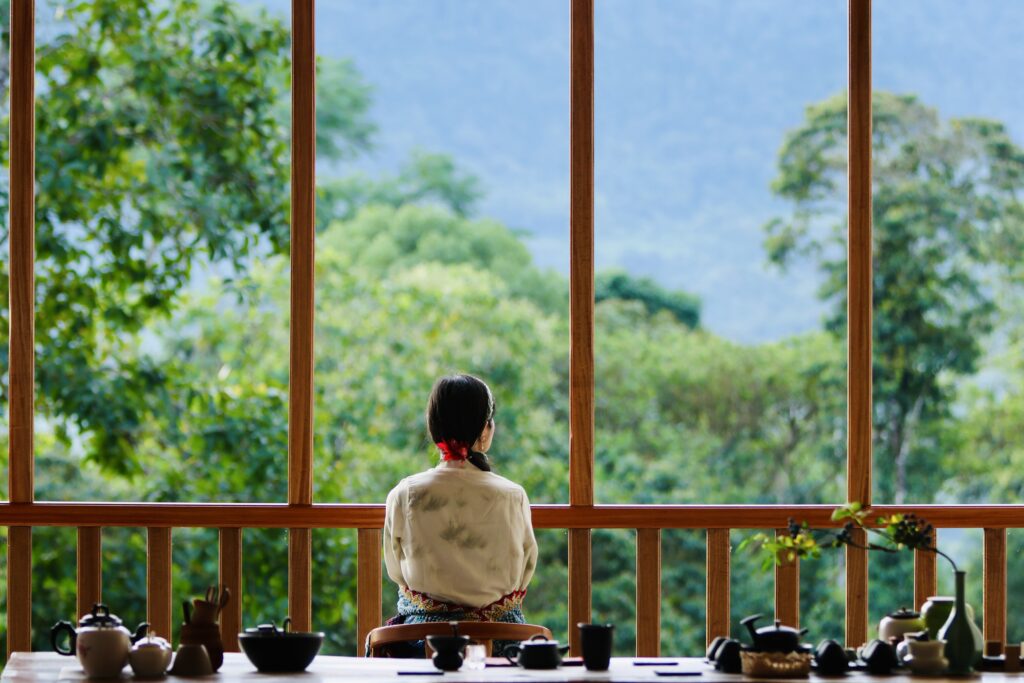
🏡 這不只是住宿,是一場文化體驗。
🏡 This is more than a stay – it’s a cultural experience.
🏡 Esto es más que una estadía: es una experiencia cultural.
🌿 在我們的家中感受東方生活美學與自然療癒。
🌿 Immerse yourself in Eastern living aesthetics and natural serenity.
🌿 Sumérgete en la estética de vida oriental y la serenidad de la naturaleza.
💧 恆溫泳池與戶外 Jacuzzi,洗去疲憊,放鬆身心。
💧 Heated pool and outdoor Jacuzzi to relax your body and mind.
💧 Piscina climatizada y jacuzzi al aire libre para relajarte.
🍽 傳統中式早餐(Breakfast | Desayuno)
・手工餃子|Homemade dumplings|Dumplings caseros
・蔬菜沙拉|Fresh veggie salad|Ensalada fresca
・當季水果|Seasonal fruits|Frutas de temporada
・茶或咖啡|Chinese tea or fresh coffee|Té chino o café
🍴 中式家庭晚餐(Dinner | Cena)
・宮保雞丁|Kung Pao Chicken|Pollo Kung Pao
・糖醋里脊|Sweet & Sour Pork|Cerdo agridulce
・魚香茄子|Spicy Garlic Eggplant|Berenjena estilo Sichuan
・香菇青菜|Mushrooms & Greens|Hongos con vegetales
・當日例湯|Daily soup|Sopa del día
・甜點|Dessert|Postre
🍵 晚餐後茶道體驗(Tea Ceremony | Ceremonia del té)
品味茶香,靜心觀照,親身體驗中國茶文化的雅致與深度。
Discover the elegance and depth of Chinese tea culture through a mindful tea ceremony.
Descubre la elegancia y profundidad de la cultura del té chino en una ceremonia tranquila.
💰 價格 Price | Precio:每人 $60 / $60 per person / $60 por persona
📍 地點 Location | Ubicación:LONG Lodge
📆 每日僅接待一組家庭 One family per night | Una familia por noche
📞 預約 Reservation | Reservas:請提前聯繫 / Please book in advance / Reservar con anticipación
Tel: +593 96 326 6815
-
En LONG Lodge, el alma descansa y el tiempo se detiene.
En la suave luz del salón, tres almas se reúnen.
El vapor del té flota, y las risas perduran.
Este instante florece en silencio,
como siluetas de una pintura antigua—elegantes y serenas.
Ellas son el paisaje más hermoso de hoy.
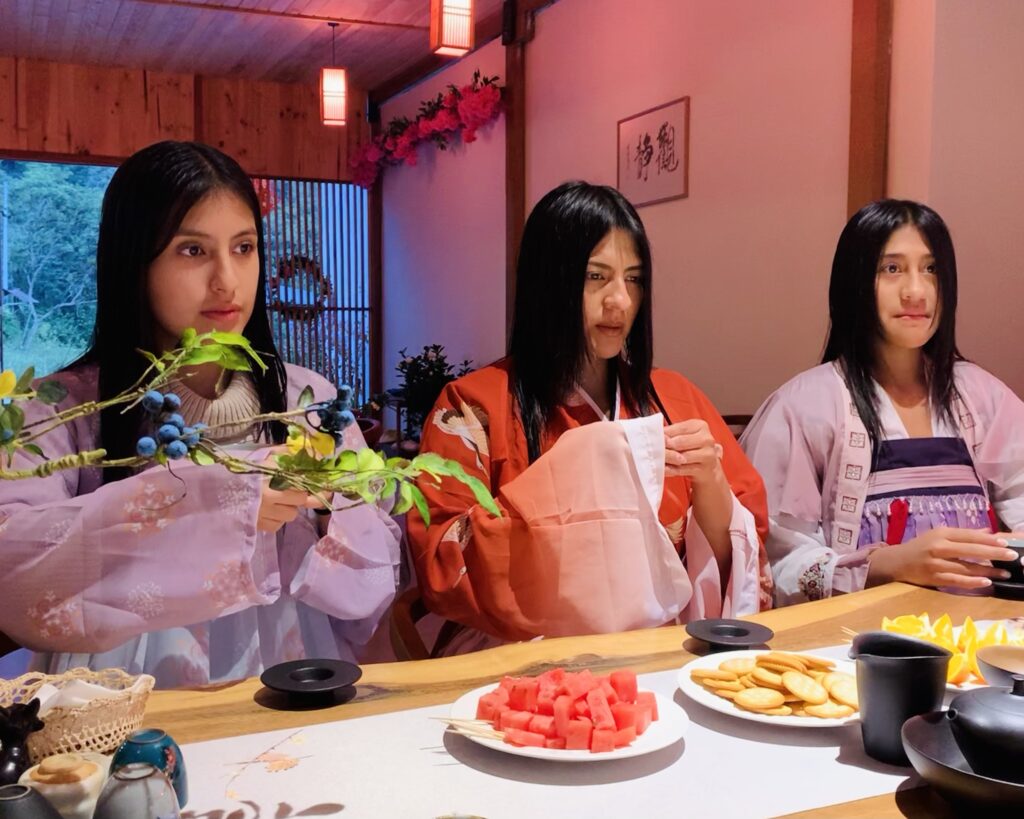
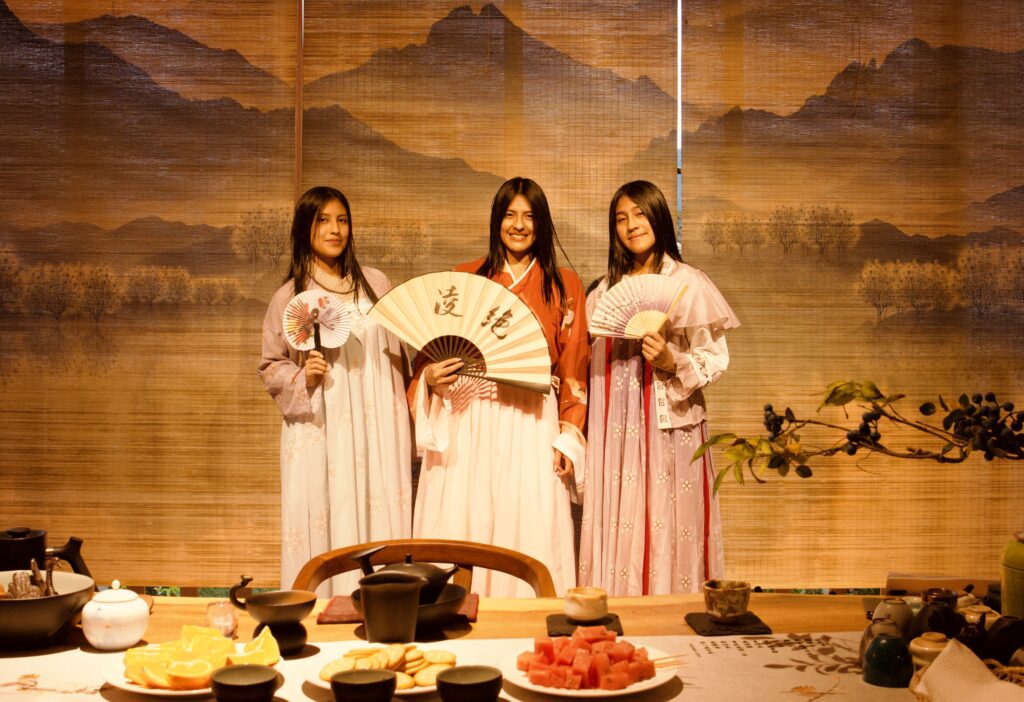
-
Christian Family
Vinieron desde lejos, pero entraron en este lugar con la naturalidad de un sueño familiar.
La familia de Christian — dos almas viajeras que siempre están en camino, con sus hijos que hablan alemán y dos gatitos curiosos — llegaron a este valle abrazado por la niebla, al que llamamos LONG Lodge.Christian llevaba su guitarra al hombro, como si siempre estuviera listo para tocar una melodía para el mundo. Su esposa, serena y sabia, caminaba a su lado. Sus dos hijos, llenos de energía, hablaban alemán y tenían los ojos encendidos por la curiosidad ante todo.
Y lo más sorprendente: ¡los niños trajeron dos gatos en el viaje! ¿Te lo puedes imaginar?
En nuestra charla, supe que también tienen una casa junto al mar. Christian me habló de brisas marinas, playas de arena, música y muchas historias más. Le dije: “Quiero visitarlos, escuchar tu guitarra, ver a los niños y a los gatos corriendo por la orilla del mar.”
Qué vida tan hermosa — como una suave canción folclórica que canta en armonía sobre la libertad, la familia y la naturaleza.
-
-
-
LONG Lodge — Rediscover inner peace in the heart of nature.
Night falls gently, and the lights sway with the breeze.
In the quiet evening at LONG Lodge — a pot of tea, a book, and a moment alone with yourself.
Let your heart slow down and your thoughts drift with the light.